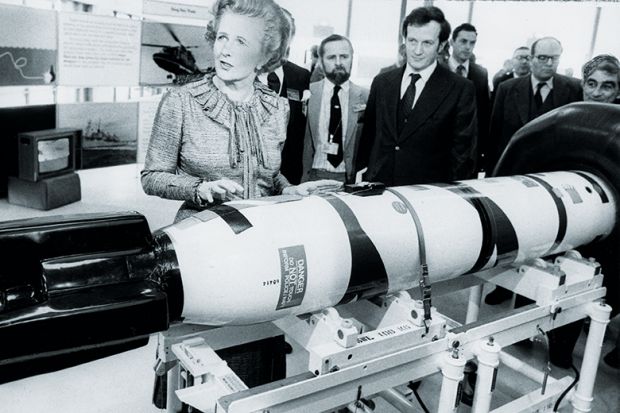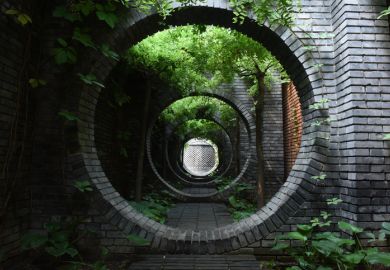On 13 January 1986, The Times published a half-page advert with over 1,500 signatories which drew attention to the rapidly declining state of UK science. This cry of pain over the effect of cuts by Margaret Thatcher’s Conservative government led directly to the setting up of the campaigning organisation Save British Science (SBS). It also forms the starting point for Jon Agar’s exemplary book, which is based on meticulous research using thousands of contemporary documents.
Cutting public expenditure was a leitmotif throughout Thatcher’s tenure at Downing Street. Surprisingly, however, the “science budget”, which provided support for specific university projects through the research councils, was held constant in real terms. Yet Agar shows that the SBS founders were not crying wolf. Drastic cuts to “block grant” funding of universities were having a disproportionately large effect on science and engineering departments. In practice, there were also cuts in research council project funding, since an increasingly weak pound meant that an ever larger share of the budget was taken by international commitments, in particular to the particle physics laboratory Cern. Exit from Cern was seriously considered, though eventually rejected.
This important monograph documents and analyses the many changes in science policy of Mrs Thatcher’s 12-year premiership, one of the most revolutionary being in the way that publicly funded researchers were allowed to treat intellectual property. She was appalled that “monoclonal antibodies”, developed at Cambridge’s world-renowned Laboratory of Molecular Biology, had not been patented by the National Research Development Corporation, sacrificing many millions in potential royalties. Instituting a policy shift in 1984, she wrote to her education minister Keith Joseph, “I see no reason why an individual researcher should be denied the right to develop his [sic] own research.” Now, 35 years later, BBC Newsnight tells us that Cambridge is the “most unequal” city in the UK, largely as a result of wealth generated in its science park.
For me, Agar’s most important contribution is his identification of who was and who was not influential in shaping science policy. George Guise, previously a director of the mining company, Consolidated Gold Fields, emerges as the most important, although he was as unknown then as he is unremembered now. Influential in many areas, he argued that “the greatest economic rewards have always resulted from advances in fundamental knowledge, rather than the search for answers to applied problems”, and prompted a major move away from government funding of near-market, applied research. In contrast, Thatcher “hardly spoke” to John Fairclough during much of his time as her chief scientific adviser.
Agar’s answer to the question, “How important was Margaret Thatcher’s previous experience as a practising scientist?”, is that it made her more than just a “conviction politician”. Perhaps, but perhaps not much more.
Agar correctly argues that the SBS had little influence on the Thatcher government’s policies. There was increased engagement after John Major took over, and subsequently Tony Blair and Gordon Brown were (and still are) both believers in the economic importance of basic research. So the underlying philosophy remained the same, but the funding picture improved dramatically from 1997, with David Sainsbury as a very enthusiastic and supportive science minister. In 2005, SBS felt it appropriate to change its name to the Campaign for Science and Engineering.
Richard Joyner is emeritus professor of chemistry at Nottingham Trent University. He was chairman of SBS/CaSE from 1996 to 2007.
Science Policy under Thatcher
By Jon Agar
UCL Press, 304pp
£40.00 and £22.99 (and free to download here)
ISBN 9781787353435 and 3428
Published 3 June 2019




